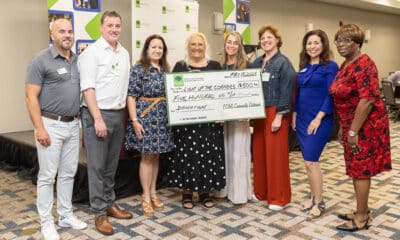Education
Cornerstone Christian Academy Expands with $4M Renovation
Published
10 months agoon

Twenty-three years ago, Cornerstone Christian Academy started a Christ-centered school with eight students. With enrollment for the fall semester at 459 students and 68 faculty members, the school’s leadership decided it was time to make more space. When classes resume, the new renovation to the K-8 facility will be a welcomed addition.
“For the last four years, Cornerstone has participated in the AJC Top Workplace anonymous survey through Energage,” said Headmaster Colin Creel. “At the conclusion of the survey a couple of years ago, we received high-level results. The survey showed our staff loved working here, but desired more space, specifically in the middle school.”
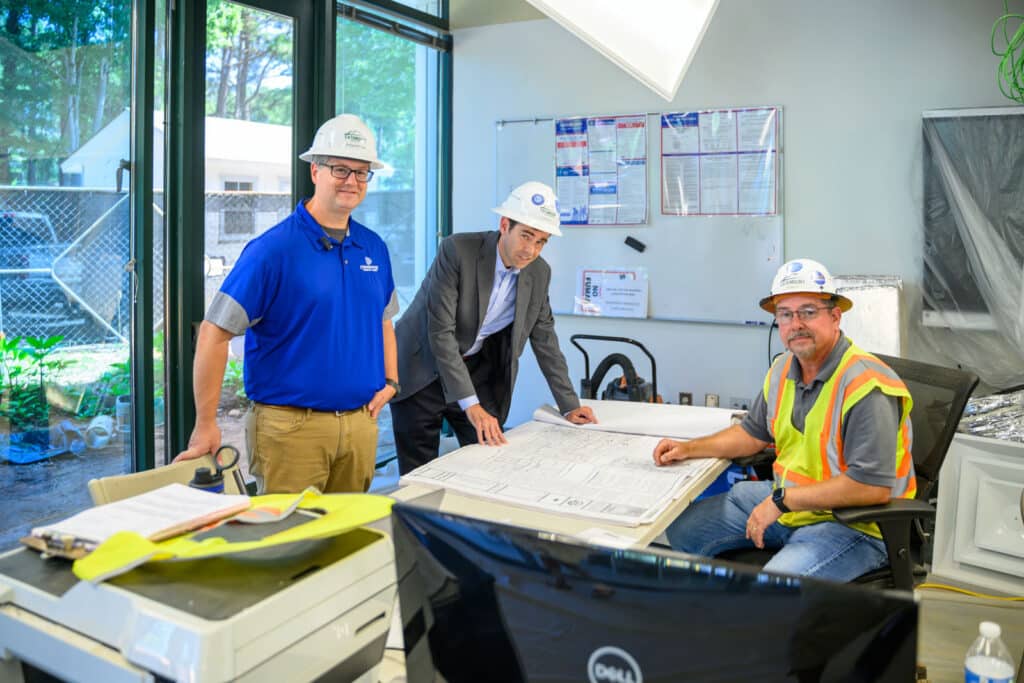
Andrew McDonald – Director of Operations
Joe Wallo

Keeping up with growing needs
After careful planning, school officials decided to add additional science labs, student spaces and offices that would remedy the challenge. The renovation of 2,500 square feet and additional 5,500 square feet will cost approximately $4 million and is expected to be complete and fully usable by January, said Creel.
“The new science labs will only be used by sixth, seventh and eighth-grade classes,” he said. “Any unscheduled time is intentional so our science teachers will be able to set up and break down labs accordingly. To this point, they have never been afforded this luxury since every space was used each period.”
There will also be breakout rooms for one-on-one conferences with parents and students and a breakroom for teachers.

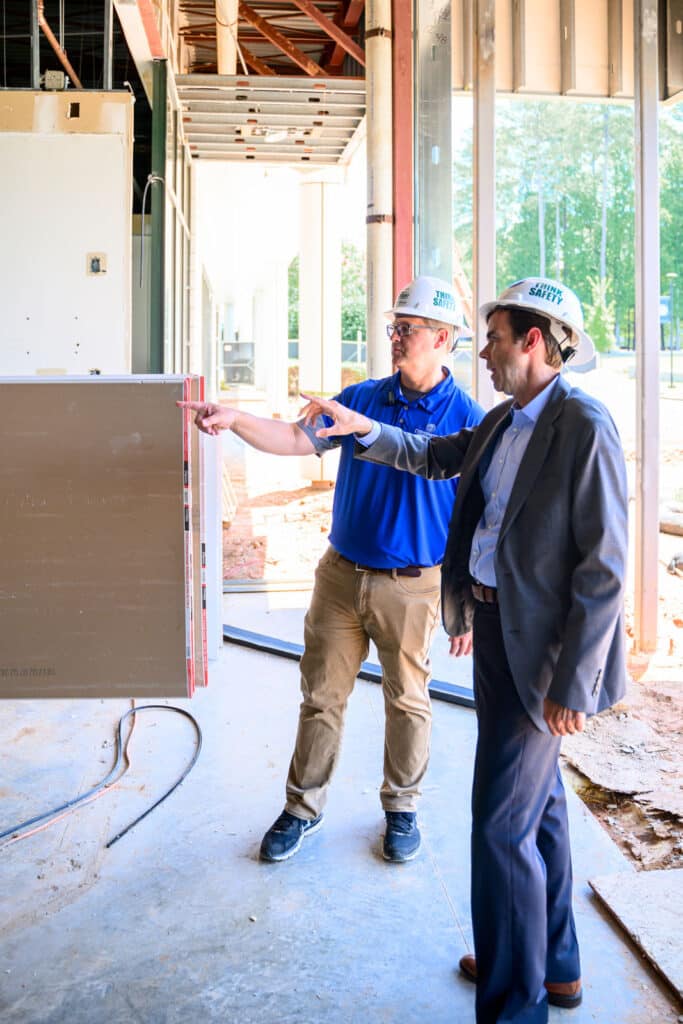
“If teachers need to meet with students or if they have a parent-teacher conference, they’ll no longer be displaced,” Creel said. “Now there are four additional little, smaller rooms. One is going to be used for our counselor and the other three will be flex spaces.”
There will also be more administrative offices. Director of Operations Andrew McDonald’s office is currently inside a closet.
School administrators believe that with the new space, the school will be just right for its mission of partnering with parents to provide a quality academic education designed to develop students who will follow Christ, embrace biblical truth and live lives that glorify God.
“This addition is a great example of responding resoundingly to a specific need,” Creel said. “I desire to serve our students and teachers as much as humanly possible. I always choose to maximize the dollars spent on our teachers and students.”
“We enjoy our current student size, and do not desire to increase our student enrollment; rather, we always are looking for ways to enhance the student and teacher experience. One of the reasons why Cornerstone is so special is that the board and the administration listen to the needs of the community and respond accordingly,” he added.
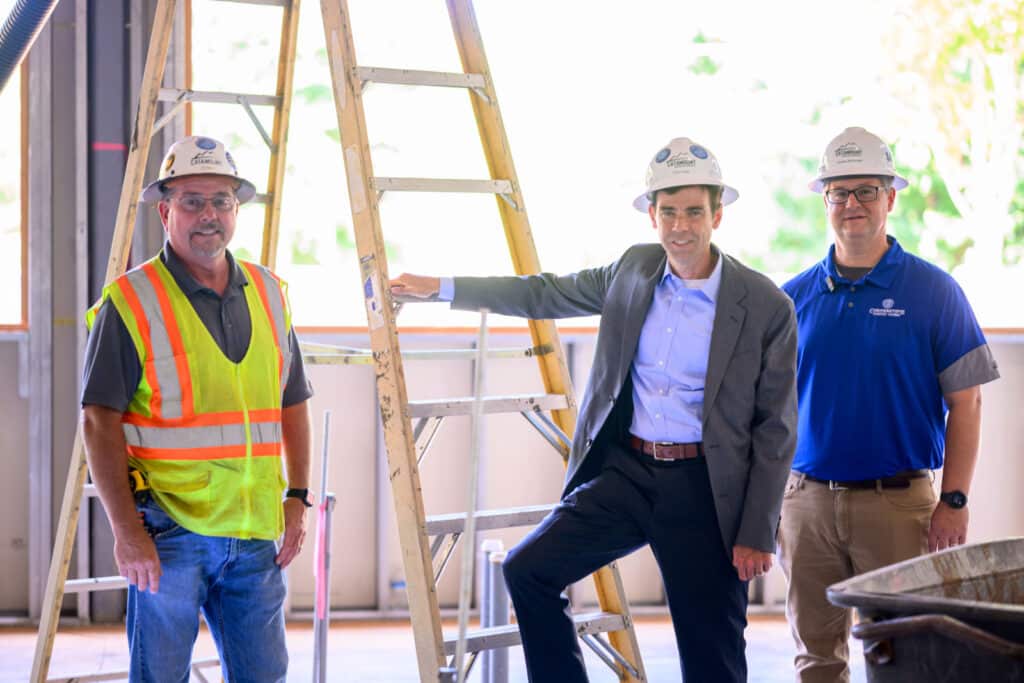
Beyond the bricks and mortar
It’s obvious that teachers are the backbone of America’s schools, but the future of the profession has been in a precarious state in the last few decades. Many researchers believe the COVID-19 pandemic only accelerated the decline.
According to its annual report, The State of Teaching, the EdWeek Research Center, the expertise and skill required to do the job well is often underestimated, while the ever-increasing demands of the job are not well understood or sometimes misrepresented.
Creel agrees.
“In the last few years, it has become harder and harder to keep and attract teachers. We’re always trying to figure out ways to get more qualified teachers to apply,” he said. “There’s an additional layer that makes it a little more challenging for us because it’s not just about great teaching, we also need people who love Christ and then love kids and not all teachers love kids.”
But Cornerstone is rising to the challenge. Creel said they meet it head-on and look for creative and effective ways to find and keep the best and brightest teachers in the area.
“In the last few years, we’ve been pretty aggressive about trying to make our pay scale as competitive with the public schools as possible,” he said. “We’re probably never going to be at the same level as public schools, but we try to offer additional benefits.”
Cornerstone matches retirement savings at an aggressive level, provides a step-up pay scale that rewards seniority and offers professional development opportunities.
“My life philosophy is I want our teachers to be inspired,” he said.
Over summer break, the school paid for teachers to get extra training in programs in Denver and California.
“We want them to become the best in their fields because I feel like when teachers are excited about what they’re doing, then the kids will be excited and parents will be happy,” said Creel.
The secret to Cornerstone’s success
“We try to make sure that our kids know the truth and we keep it pretty simple,” he said. “I think our culture is changing pretty rapidly and we want to continue to keep our kids grounded and we want to keep them encouraged.”
He explained that the mental health crisis affects every sector of the population – his students included.

He referenced a book called, The Anxious Generation: How the Great Rewiring of Childhood Is Causing an Epidemic of Mental Illness.
“It has data to support what we as educators know already that cell phones and smartphones, at a young age, are bad for kids’ self-esteem,” he said.
Although Cornerstone hasn’t been forced to use cell phone lock pouches like many schools across the country, it has a policy that phones are not to be in use during school hours. There have been no problems with compliance so far.
The Cornerstone “village”
Like many private schools and some public schools, Cornerstone asks parents to contribute volunteer hours.
“That’s going to look different for parents based on if they work full-time, but lots of different ways to get people plugged in,” Creel said. “Our parent-teacher fellowship does a great job.”
He recalled a former teacher who had taught in public schools for a while and when she came to Cornerstone, she’d tell people it was like Disney World – the happiest place on earth in part because of the parents’ willingness to participate.
“This is a special place and one of the hallmarks is that we have so many great parents that get involved,” he said. “They are supportive of our community. We have big events here out on the field, and you’ve got parents signing up to volunteer to help with whatever needs to be done. There’s always a core of people who want to come out and be a part of it.”
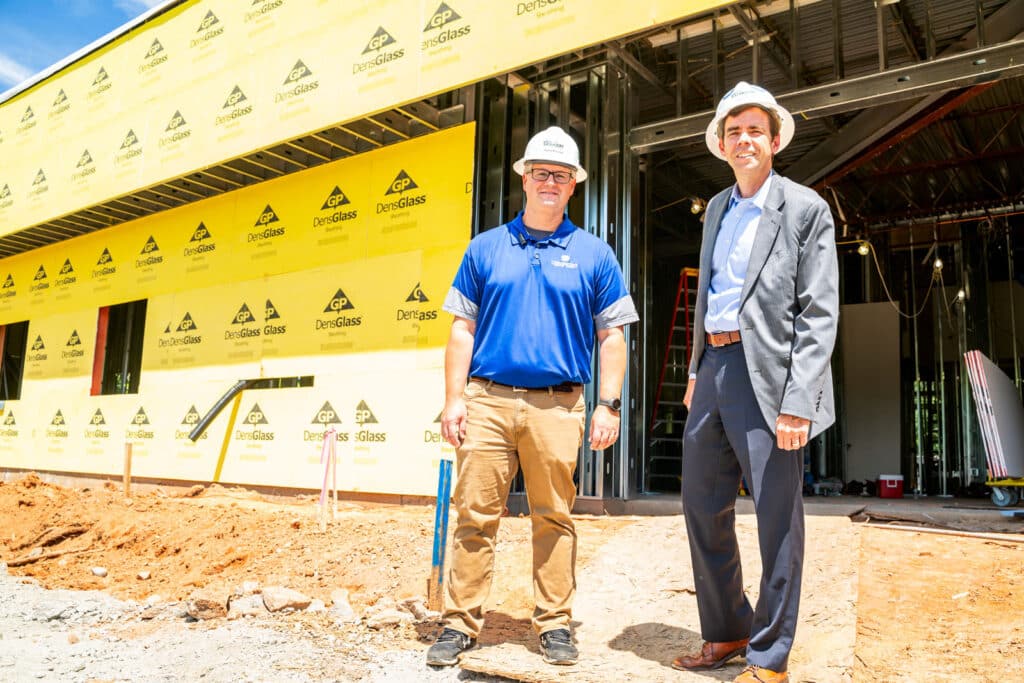
Creel added that there’s a kind of open-door policy where parents are invited to come to school throughout the year – not just for school functions, but to share birthday celebrations with their kid’s class or eat lunch with students in the cafeteria.
“We want the family to be a part of their children’s education – not just dropping them off. We’re not at daycare. We’re here to teach but be a part of that life experience,” Creel said.
That ethos so moving for Director of Operations Andrew McDonald that it inspired him to become an employee as well.
“My background is in operations and there was one year I was at a fundraising dinner, and I saw this little spot on the board that said, ‘operations director office’ and so I asked Colin, ‘What’s the plan for this position?’ And he said oh it’s years down the road’” said McDonald.
He and Creel worked out the details and soon McDonald was on board, where he’s been for the past three years.
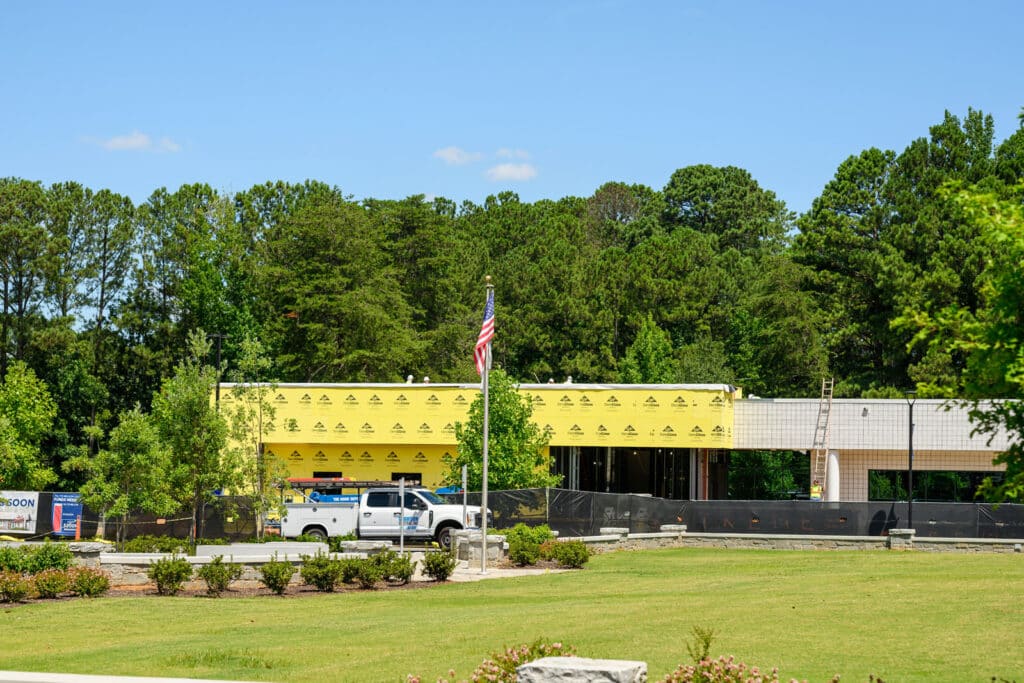
“It’s great to ride into school with the kids in the morning and home in the evening,” he said. “Not a day doesn’t go by where they’re not excited about something that happened and want to share those great experiences that are foundational to their life kindergarten through eighth-grade education.”
Creel noted that 95% of a child’s moral development occurs between the ages of three and 13.
“That’s why we’re here, to help these kids have a foundation for where they go next; private school or public school, it’s usually about 50/50, that they stand out in a good way because they’re used to taking ownership of their education,” he said.
“They’ve been given leadership opportunities in middle school that you typically give to juniors and seniors in high school. They just stand out in a good way and that’s our goal: to prepare them for life so that they can be a light out in the world,” he explained.
For more information about Cornerstone Christian Academy, visit cornerstonecougars.org.
To read more about local education, click here.
Related
Arlinda Smith Broady is part of the Boomerang Generation of Blacks that moved back to the South after their ancestors moved North. With approximately three decades of journalism experience (she doesn't look it), she's worked in tiny, minority-based newsrooms to major metropolitans. At every endeavor she brings professionalism, passion, pluck, and the desire to spread the news to the people.

Education
Celebration and Community: ICAGeorgia Wraps Up School Year with Two Festive Events
Published
1 week agoon
May 22, 2025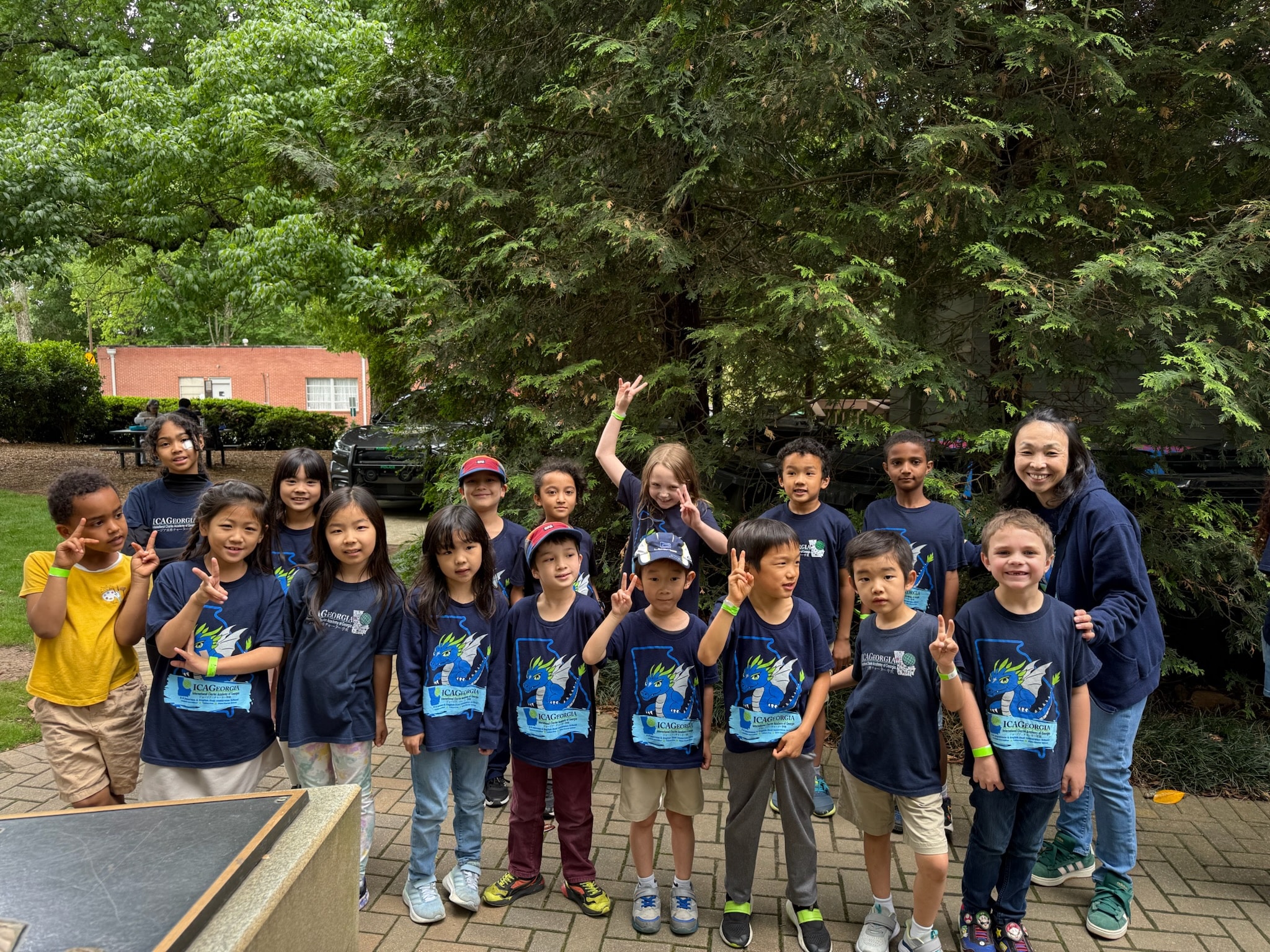
The International Charter Academy of Georgia (ICAGeorgia) recently hosted its third annual Dining with the Scholars event on April 18 — an evening filled with celebration, culture and community spirit.
Held at Canton House in Duluth, the event welcomed over 200 attendees, including students, parents, teachers, board members, local sponsors and special guest, the Consul General of Japan.
Fundraising and performances
The purpose of the event was twofold: to raise funds in support of academic programs for the school and, most importantly, to honor and showcase the outstanding talents and achievements of ICAGeorgia students.
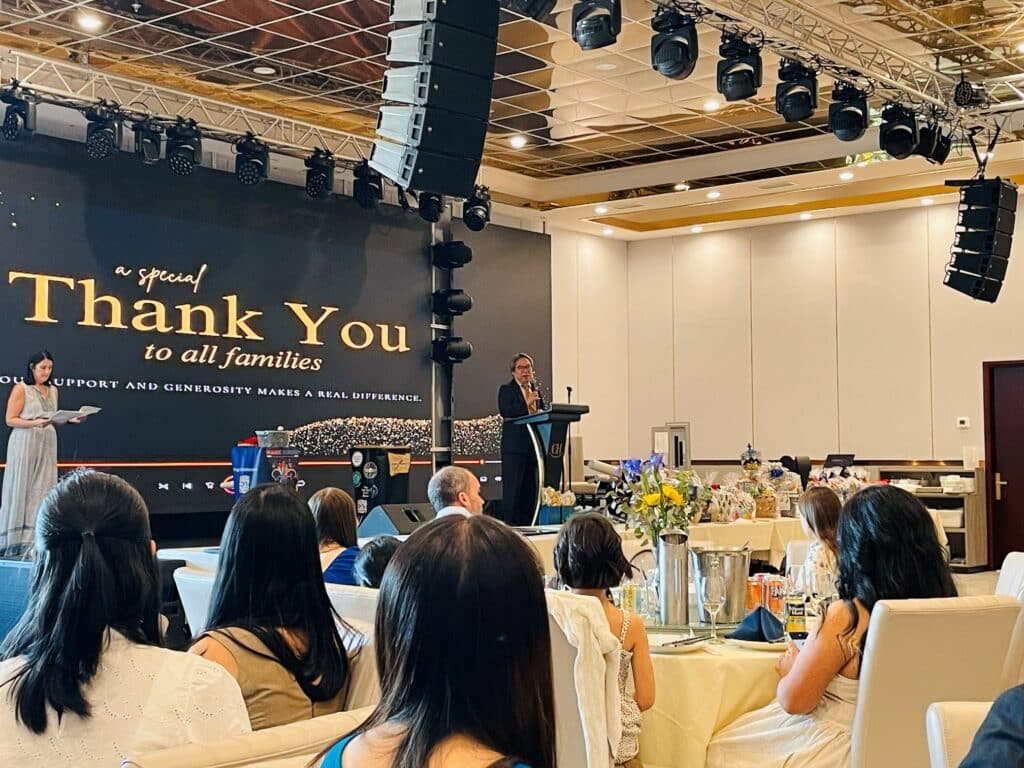
Throughout the evening, guests enjoyed a silent auction, dinner and dessert, as well as a vibrant lineup of student performances, a magic show and live music — creating a truly festive and memorable atmosphere.
“We extend our heartfelt thanks to the many local companies and organizations whose generous sponsorship made this event possible,” said Felecia Tucker-Jones, principal of ICAGeorgia. “[The] support helps us continue to grow and enhance our academic offerings.”
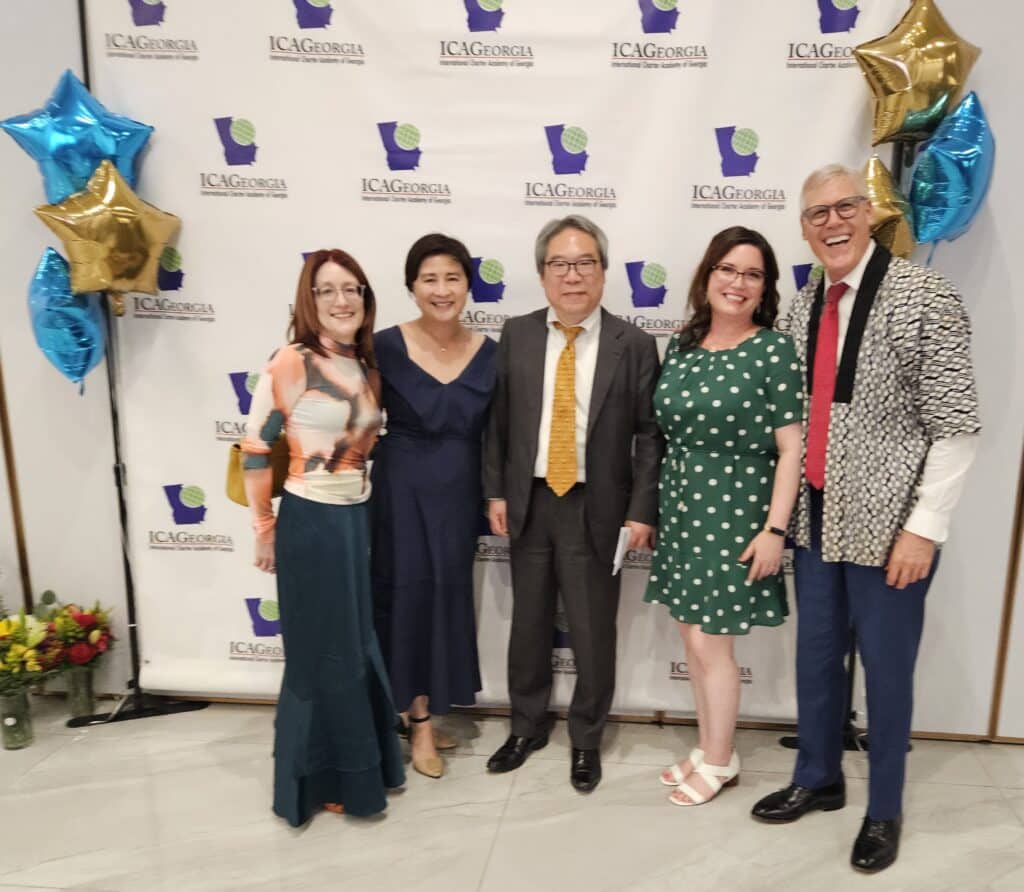
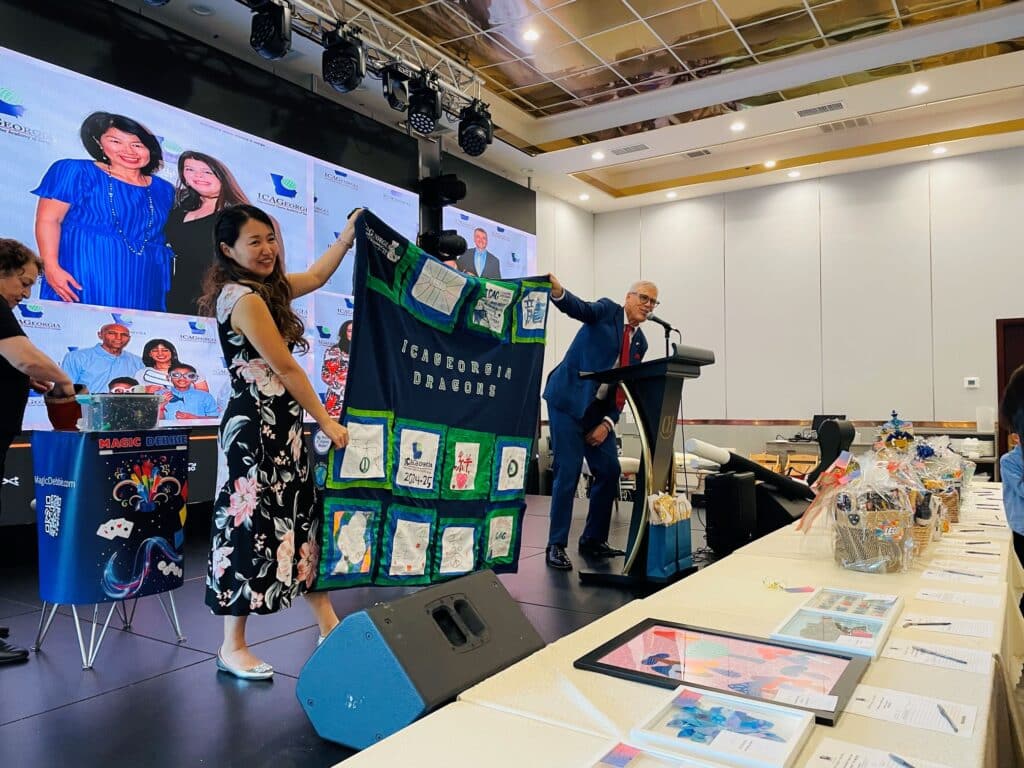
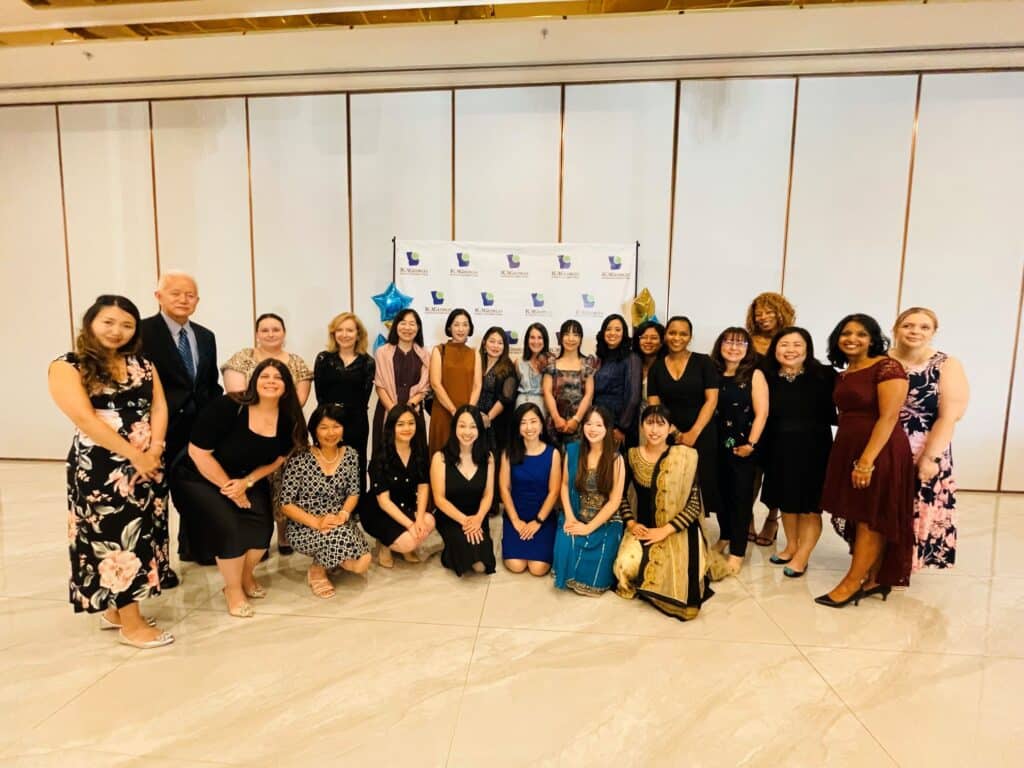
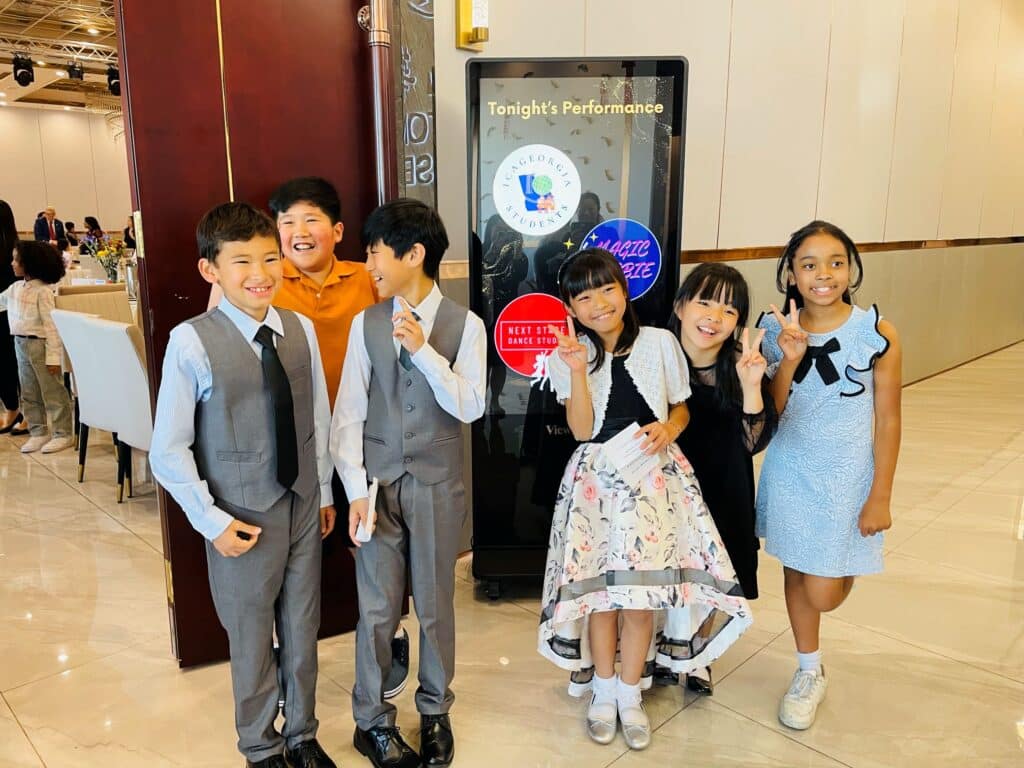
By all accounts, it was a night to remember — and a wonderful reminder of the strong, supportive community that surrounds the school.
Children’s Day Festival
On May 4, students, families and community members gathered at Thrasher Park in Norcross for a vibrant celebration of Children’s Day, a beloved Japanese holiday that honors children’s happiness, growth and well-being.
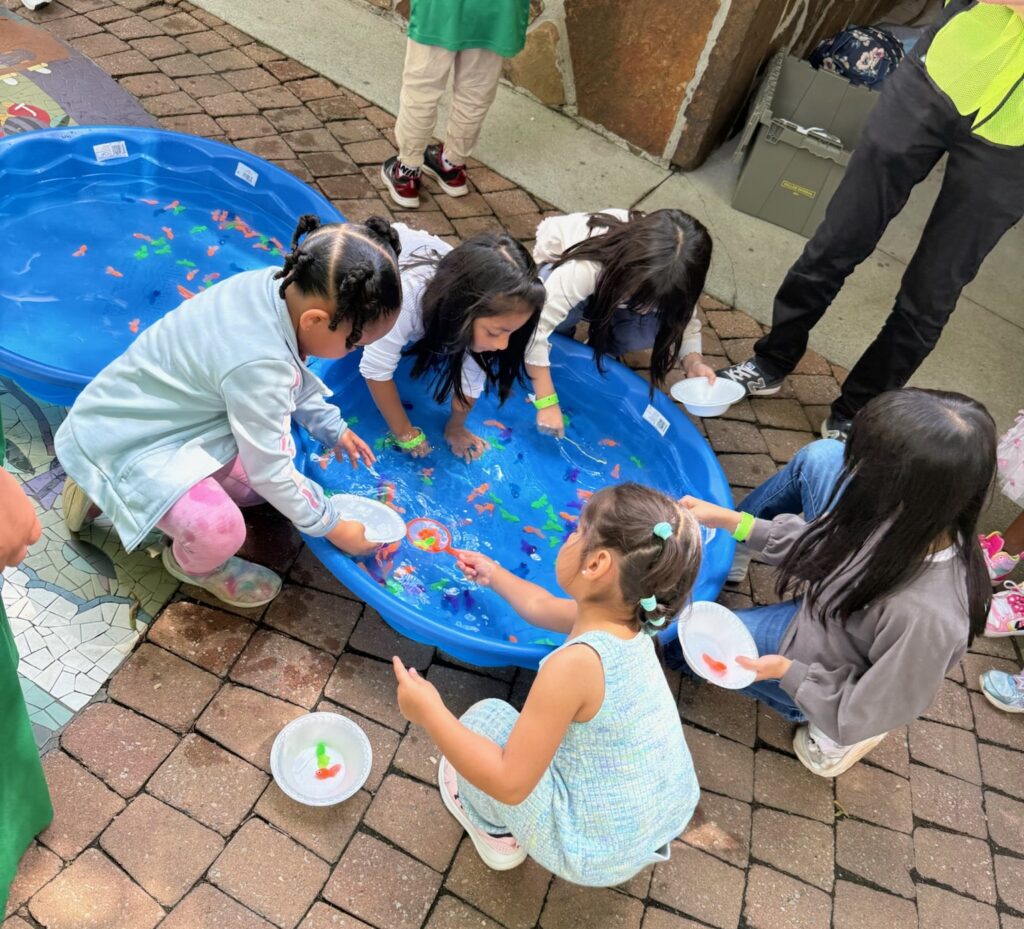
The Japan’s Children’s Day Festival 2025 brought together over 1,000 attendees for a full day of music, crafts, food and cultural experiences.
Visitors of all ages enjoyed traditional Japanese activities such as origami, kingyo sukui (goldfish scooping) and kimono try-ons, while kids played in bounce houses, participated in golf and soccer games and listened to story time in the park.
The festival’s stage was alive with performances from school choirs, dance studios and even a thrilling showcase of breakdancing and karate. Local vendors offered delicious international food — from pizza, tacos and paella to boba and shaved ice — while guests explored artisan booths and even online shopping options.
Culture and community
This festival was a beautiful reflection of cultural pride and community spirit and partnerships, with ICAGeorgia, local small businesses and generous sponsors bringing the vision to life.
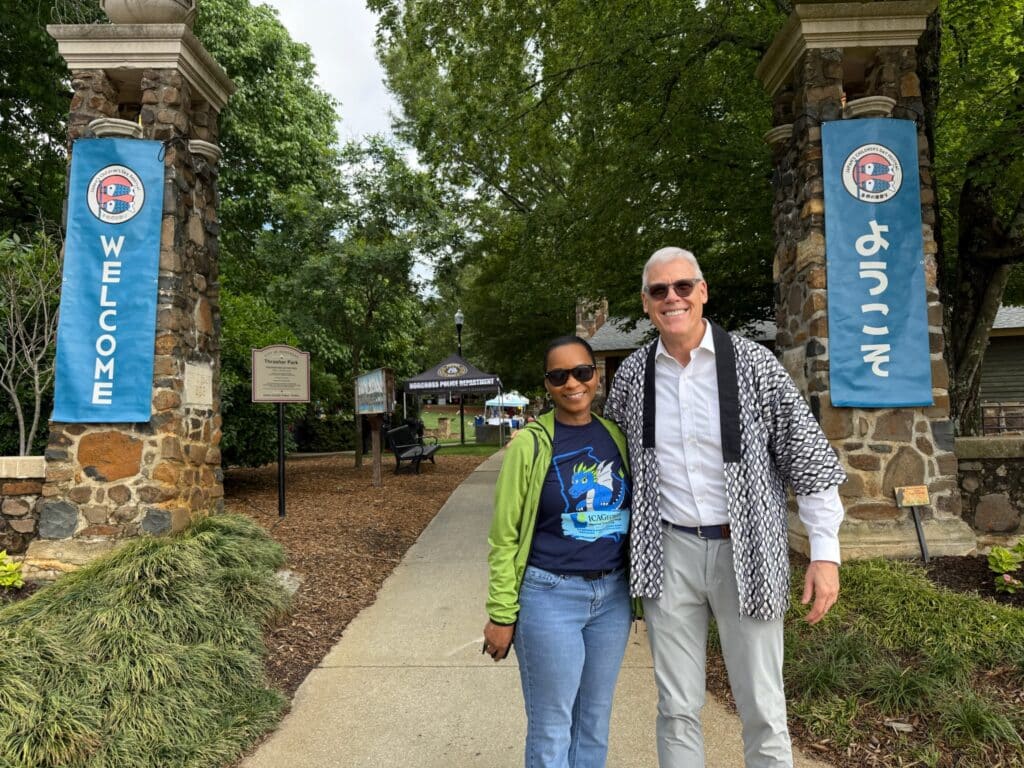
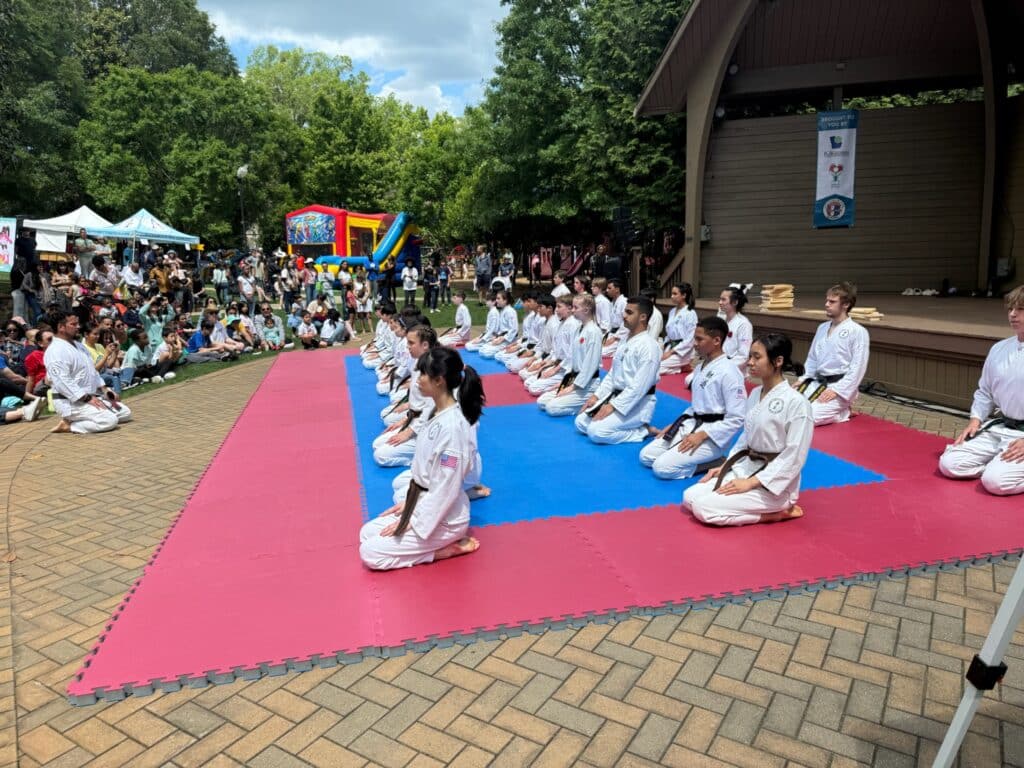

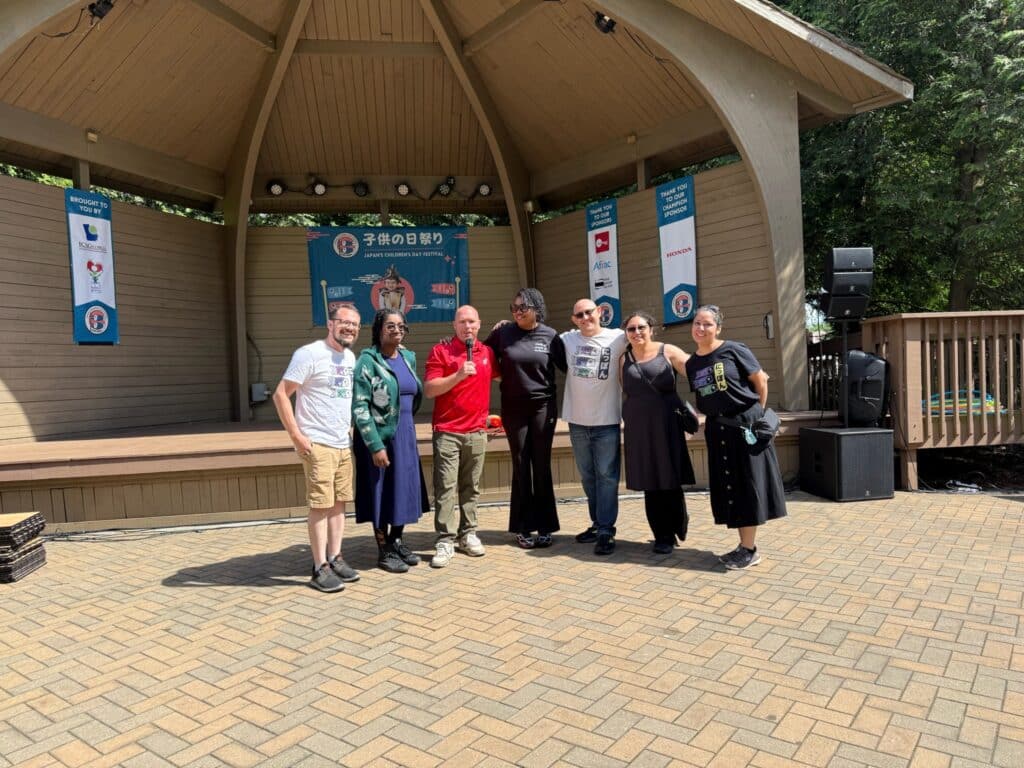
“We’re deeply grateful to all our sponsors, performers, volunteers and families who made the day so special,” said Jeremy Williams, president of the ICAGeorgia PTO.
As Norcross continues to grow as a hub for diverse cultural events, Japan’s Children’s Day Festival stands out as a joyful, family-focused experience with the goal of continuing for years to come.
Follow Japan’s Children’s Day Festival (@JapansChildrensDayFestival) on Instagram and Facebook, and stay tuned for next year’s exciting event.
About ICAGeorgia
The International Charter Academy of Georgia is a statewide charter school available free of charge to any K–6 student residing in Georgia.
Located in Peachtree Corners, the school offers a dual language immersion program in both English and Japanese, a rigorous standards-based curriculum, extracurricular activities and multiple opportunities throughout the year to engage in cross-cultural community.
For more about the school, visit internationalcharteracademy.org.
Related
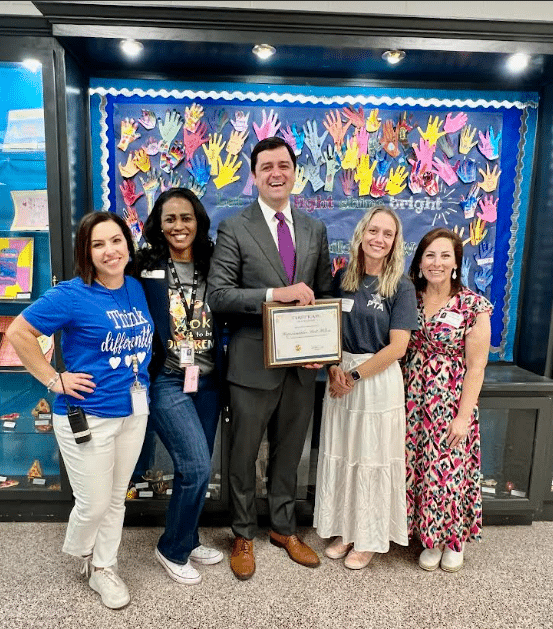
Simpson Elementary School celebrated Exceptional Children’s Week (ECW) last month with five days of special activities to recognize their special needs population and all of their exceptional students.
April 14–18 is set aside each year to celebrate children with disabilities, gifts and talents. This year’s ECW theme was Bridging Gaps and Building Futures, and the school was happy to take part.
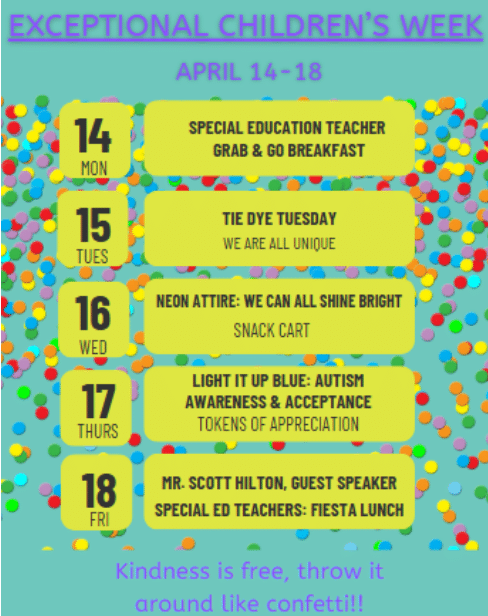

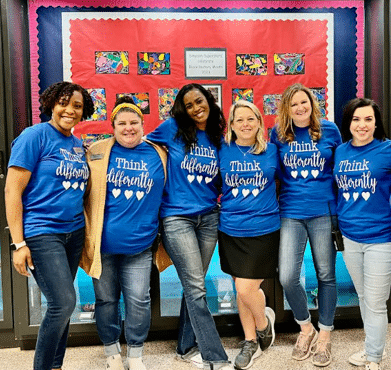
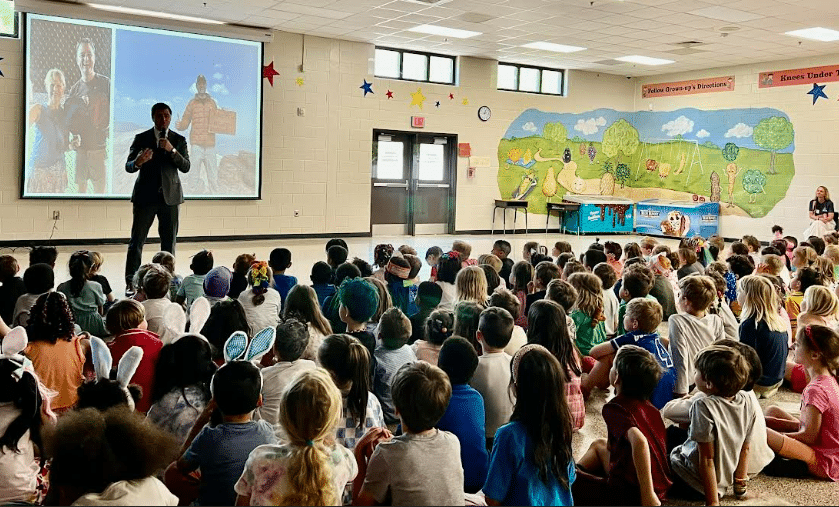
They highlighted each day of the week on the morning news with fun facts about notable people in society — and throughout history — who have overcome challenges with their disabilities, including actor Daniel Radcliffe (who has lived with dyspraxia for his entire life), Tom Cruise, Whoopi Goldberg, Frida Kahlo and Helen Keller.
Simpson Elementary’s technology team also pre-recorded various special needs classes reciting the Pledge of Allegiance every day of the week.
Guest speaker
To end their ECW with a bang, they invited former Simpson Elementary parent, State Representative Scott Hilton, to come in and speak to their K-2 classes about raising his son, Chase (who is autistic and now a student at Norcross High School), and how being different is okay.
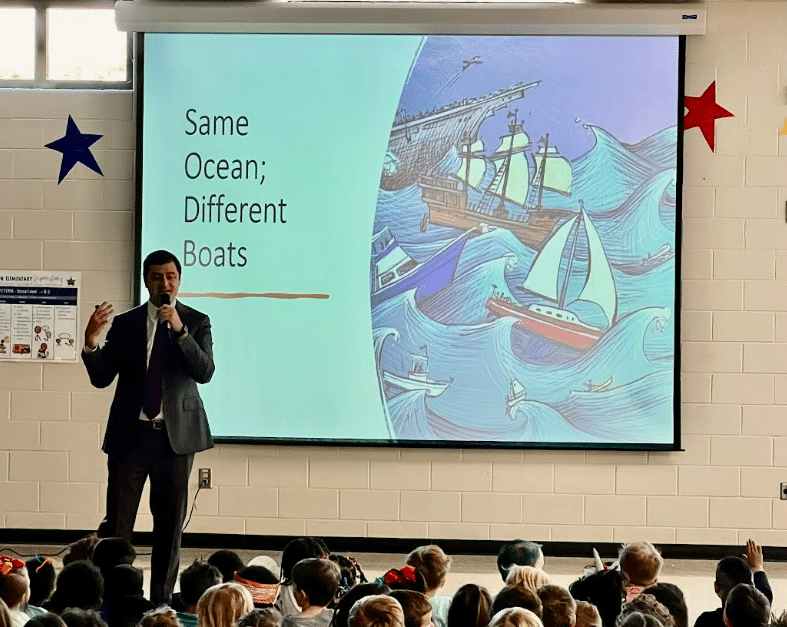
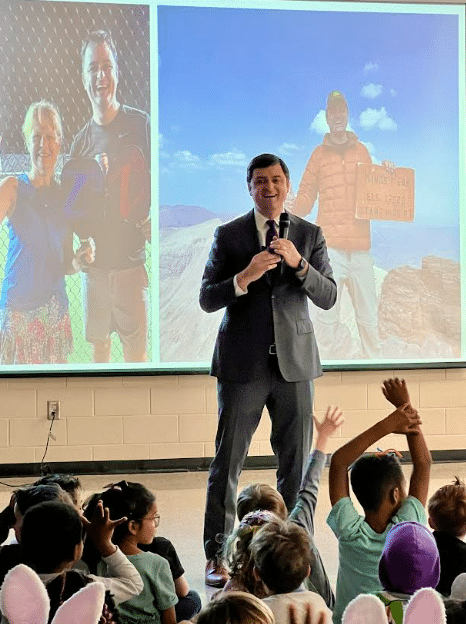
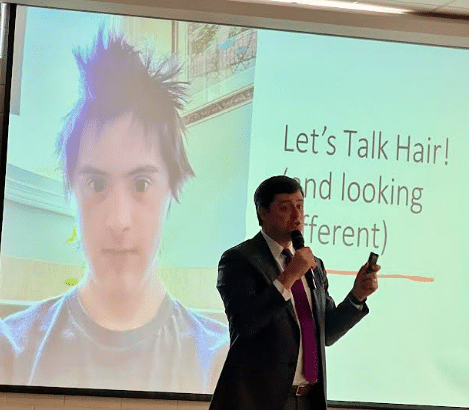
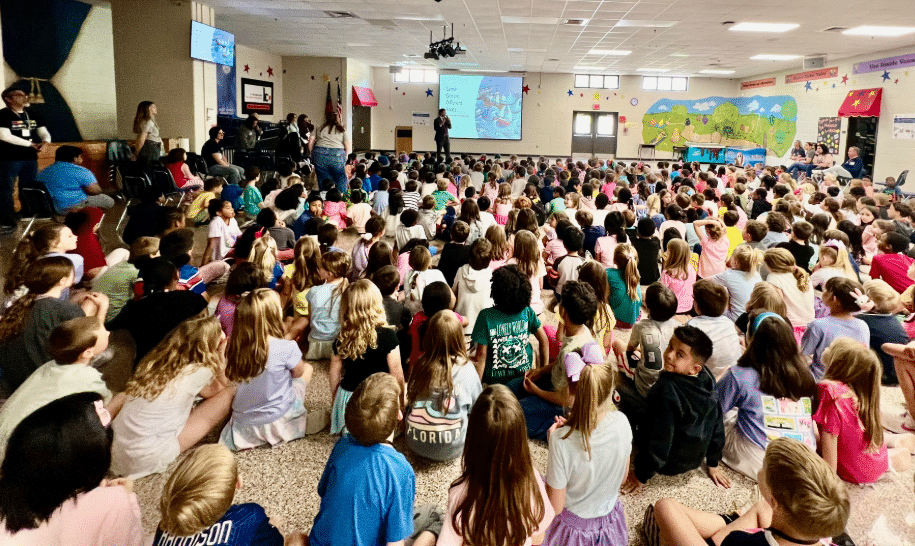
“Showing kindness and being inclusive is the best version of humanity,” said Dr. Taffeta Connery, Simpson Elementary School principal, in a statement about the event.
“Simpson Elementary has a special needs population of 214 (23%) of 946 students. [And] … we strive to ensure that our students are valued, recognized and instilled with high expectations for all.”
For more about Simpson Elementary, visit simpsones.gcpsk12.org.
Related
Education
Paul Duke STEM High School Student Earns CGO Scholarship
Published
4 weeks agoon
May 2, 2025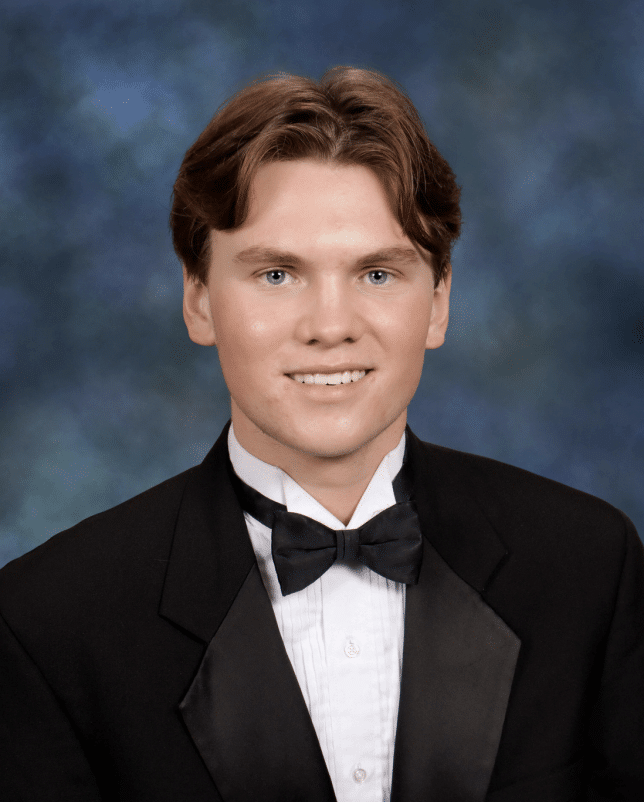
Cobb Global Outreach Inc. (CGO Inc.), a non-profit organization dedicated to enhancing financial literacy and educational opportunities, recently awarded three scholarships to metro Atlanta high school seniors, including one to Paul Duke STEM student, Baylor M. Brown.
The scholarship initiative underscores CGO Inc.’s commitment to empowering youth through financial education and support.
According to CGO’s social media pages, these outstanding students have shown incredible dedication and resilience in their academic journeys. “We are proud to support their continued success and look forward to seeing all that they will achieve!”
Scholarship details and impact
The scholarships provided by CGO Inc. are designed to alleviate financial barriers and encourage academic excellence among students pursuing higher education. Each scholarship recipient will receive financial assistance to support their educational endeavors, along with resources to enhance their understanding of financial management and literacy.
The scholarship recipients have demonstrated remarkable potential and a strong commitment to making a positive impact in their local community and beyond.
Bobby Cobb, CEO and founder of Cobb Global Outreach Inc., expressed enthusiasm about the partnership, stating, “We are honored to support the students … . By investing in their education and financial literacy, we aim to equip them with the skills necessary for a successful and financially secure future.”
Looking ahead
Cobb Global Outreach Inc. remains committed to expanding its scholarship programs and financial literacy initiatives. The organization plans to collaborate with additional schools and community partners to further its mission of closing the wealth gap and fostering economic empowerment among youth.
About Cobb Global Outreach Inc.
Founded in January 2021, Cobb Global Outreach Inc. is dedicated to educating middle and high school students about financial literacy. The organization believes that providing students with tools and resources related to financial literacy will help narrow the wealth gap and promote economic empowerment.
For more information, visit cobbglobaloutreachinc.com.
Related
Read the Digital Edition
Subscribe
Keep Up With Peachtree Corners News
Join our mailing list to receive the latest news and updates from our team.
You have Successfully Subscribed!

From Boardrooms to the Himalayas: Vandana’s Journey to Purpose and Growing with Intention [Podcast]

Guardians of the Jukebox to Play the VoxStage on May 31

Music Matters Productions Expands Peachtree Corners Headquarters

Brandon Branham Honored for Transformative Leadership in Peachtree Corners

“Geek Culture” Shines at 2025 MomoCon

Celebration and Community: ICAGeorgia Wraps Up School Year with Two Festive Events

Vox-Pop-Uli Launches RED Initiative for Veterans’ Support

The PCBA Awards $500 to Light Up The Corners at After-Hours Event

Vox-Pop-Uli Launches RED Initiative for Veterans’ Support

The PCBA Awards $500 to Light Up The Corners at After-Hours Event

“Geek Culture” Shines at 2025 MomoCon

Celebration and Community: ICAGeorgia Wraps Up School Year with Two Festive Events

Guardians of the Jukebox to Play the VoxStage on May 31

Music Matters Productions Expands Peachtree Corners Headquarters

Brandon Branham Honored for Transformative Leadership in Peachtree Corners

From Boardrooms to the Himalayas: Vandana’s Journey to Purpose and Growing with Intention [Podcast]

Light up the Corners [Video]

Capitalist Sage: Business Leadership in Your Community [Podcast]

Cliff Bramble: A Culinary Adventure through Italy

Top 10 Brunch Places in Gwinnett County

A Hunger for Hospitality

THE CORNERS EPISODE 3 – BLAXICAN PART 1

Top 10 Indoor Things To Do This Winter

The ED Hour: What it takes to Remove Barriers from Education








